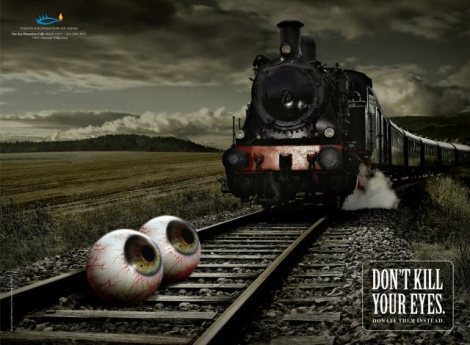Tara Parker-Pope wrote an interesting article in the New York Times titled The Reluctant Organ Donor. So far, I have spoken about people’s fears of organ donation; fears that have been fuelled by a lack of information about how and if they can help. But I’ve never thought about people’s reluctance when it came to the process of organ donation and transplantation. I guess I never thought about the process myself. I mean, when I do pass away (hopefully that’s some 80 years down the track, gotta be here for those flying pigs) I feel content with knowing it’s all going to the right place, or rather, person in need. Yet, the process itself is daunting. What are they going to do with my body?
Here is her article on the reluctant organ donor. Do read it, it’s a real eye-opener.
Most licensed drivers don’t sign up to be organ donors, and it may be due to fears about the organ donation process, a new survey suggests.
Only 38 percent of licensed drivers are registered to be organ donors, despite the fact that many states offer a simple registration process that typically just requires a signature when obtaining or renewing a driver’s license. An online survey of 5,100 people conducted by the advocacy group Donate Life America found that many people still harbor fears about what organ donation really means.
- 23 percent of people fear they are not healthy enough or are too old to donate their organs.
- 50 percent of respondents are concerned that doctors will not try as hard to save them if they are known to be an organ donor.
- 44 percent believe there is a black market in which people can buy or sell organs or tissue.
- 57 percent question whether or not a person can recover from brain death.
Donate Life chairwoman Sara Pace Jones said common misconceptions about organ donation may be due, in part, to inaccurate media portrayals of the process.
“Some fears are perpetuated by dramatic television shows that, because they have to tell a complete story in an hour or less, don’t have time to show the accurate and entire process of donation,” Ms. Pace Jones said. “Many times I have seen a story unfold where the same physician treats the patient when admitted to the hospital, takes them to surgery, pronounces the patient dead, accesses the transplant list and does the organ recovery and transplant. But this is not how the donation process happens. The doctor who is trying to save the life of the injured patient is not the same doctor who recovers organs for transplantation.”
Helping people understand exactly how the process of organ donation works is the first step toward alleviating fears that doctors don’t work as hard to save organ donors, she said. For instance, many people don’t realize that the organizations that check donor and patient registries and coordinate donations are separate from the hospital where a patient is treated.
“People are reassured that everything will be done to save their lives after an accident when they understand that the doctors who treat them have nothing to do with the transplantation process,” she said.
Donate Life America is launching a page on Facebook at www.facebook.com/donatelife to make it easier for users to register as donors. Just click on the link and then click on the “Register” tab.
Tara Parker-Pope wrote an interesting article in the New York Times titled The Reluctant Organ Donor. So far, I have spoken about people’s fears of organ donation; fears that have been fuelled by a lack of information about how and if they can help. But I’ve never thought about people’s reluctance when it came to the process of organ donation and transplantation. I guess I never thought about the process myself. I mean, when I do pass away (hopefully that’s some 80 years down the track, gotta be here for those flying pigs) I feel content with knowing it’s all going to the right place, or rather, person in need. Yet, the process itself is daunting. What are they going to do with my body?
Here is her article on the reluctant organ donor. Do read it, it’s a real eye-opener.
Most licensed drivers don’t sign up to be organ donors, and it may be due to fears about the organ donation process, a new survey suggests.
Only 38 percent of licensed drivers are registered to be organ donors, despite the fact that many states offer a simple registration process that typically just requires a signature when obtaining or renewing a driver’s license. An online survey of 5,100 people conducted by the advocacy group Donate Life America found that many people still harbor fears about what organ donation really means.
- 23 percent of people fear they are not healthy enough or are too old to donate their organs.
- 50 percent of respondents are concerned that doctors will not try as hard to save them if they are known to be an organ donor.
- 44 percent believe there is a black market in which people can buy or sell organs or tissue.
- 57 percent question whether or not a person can recover from brain death.
Donate Life chairwoman Sara Pace Jones said common misconceptions about organ donation may be due, in part, to inaccurate media portrayals of the process.
“Some fears are perpetuated by dramatic television shows that, because they have to tell a complete story in an hour or less, don’t have time to show the accurate and entire process of donation,” Ms. Pace Jones said. “Many times I have seen a story unfold where the same physician treats the patient when admitted to the hospital, takes them to surgery, pronounces the patient dead, accesses the transplant list and does the organ recovery and transplant. But this is not how the donation process happens. The doctor who is trying to save the life of the injured patient is not the same doctor who recovers organs for transplantation.”
Helping people understand exactly how the process of organ donation works is the first step toward alleviating fears that doctors don’t work as hard to save organ donors, she said. For instance, many people don’t realize that the organizations that check donor and patient registries and coordinate donations are separate from the hospital where a patient is treated.
“People are reassured that everything will be done to save their lives after an accident when they understand that the doctors who treat them have nothing to do with the transplantation process,” she said.
Donate Life America is launching a page on Facebook at www.facebook.com/donatelife to make it easier for users to register as donors. Just click on the link and then click on the “Register” tab.
Courtesy of the New York Times Online
<3<3 Stephanie




